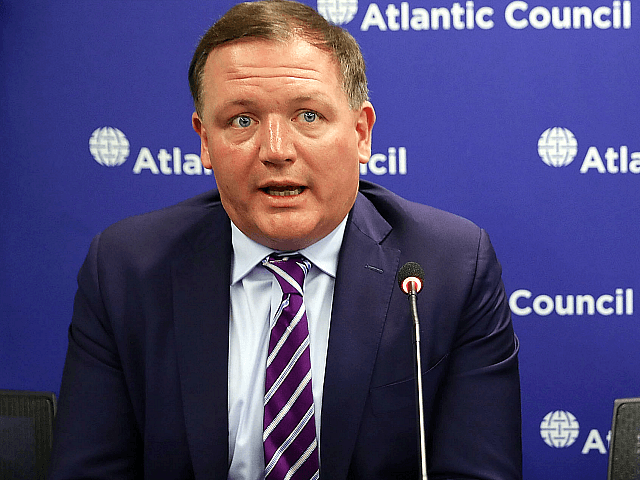Tory Remainer Damian Collins, chairman of Parliament’s Digital, Culture, Media, and Sport committee, is pushing for a raft of levies and free speech restrictions on social media to prevent the spread of so-called ‘fake news’.
The Folkestone and Hythe MP complained that 40 percent of the British public were getting their news from social media, and disagreed with the view that “this is an empowering way to receive the news, as rather than experts deciding what’s important and worthy of being reported, you instead see more news about the things you are actually interested in”.
Writing in the establishment centre-right Telegraph newspaper, the 44-year-old claimed that investigations into “disinformation and fake news” by his Remainer-dominated committee found that “the echo chamber effect of social media means that you largely just hear increasing amounts of the same type of news, as you engage with more of the content of the people closest to you”, adding that “the vast quantities of data that companies like Facebook gather about their users, help people to effectively target you with information they think you will be most responsive to”.
Some observers have pointed out that advertisers both in and out of politics have always attempted to target viewers with information they think they will be most responsive to, and that in the pre-digital age almost everyone received the lion’s share of their news from newspapers which are very clearly biased — reinforced, then as now, by the views expressed by “the people closest to you”.
Damian Collins: Britain’s Russian Inquiry Chief is a Hardline Remainer, Quoted Soros, Spread Govt Fake News Over Brexit https://t.co/Xuf0NeaAkY
— Breitbart London (@BreitbartLondon) February 11, 2018
Collins clearly sees the fact that news can now be disseminated by ordinary people and commentators outside the political mainstream via online venues as a problem, however — recommending that the British government follow Germany’s Network Enforcement Act, or NetzDG, which puts onerous demands on social media firms like Facebook to police and filter news output or face massive fines.
The NetzDG does not appear to be purely about removing illegal or “fake” content from social media, however, with Chancellor Angela Merkel having been caught on a hot mic asking Facebook CEO Mark Zuckerberg what he was going to do about posts critical of immigration in September 2015.
REAL COLLUSION: Foreign Billionaire George Soros Funding Gina Miller’s Anti-Brexit Campaign https://t.co/gPzVqCD0Lj
— Breitbart London (@BreitbartLondon) February 8, 2018
References to alleged Russian involvement in the EU referendum debate on social media — which his own committee found to be extremely minimal — and research showing that “the most popular fake news stories were more widely shared that the top real news stories” during the 2016 presidential campaign in the U.S. indicate that Collins’s calls for regulation are motivated by dissatisfaction with the outcome of recent votes.
The dangers inherent in allowing state regulators to decide what is “real” and what is “fake” do not appear to have been considered by the MP.
Collins’s recommendations come at the same time as other Members of Parliament are pushing for laws which would ban members of the public from standing for elections for “trolling” members of the political class — a proposal which would raise important questions about accountability and the right to sharply criticise politicians if it was passed.

COMMENTS
Please let us know if you're having issues with commenting.